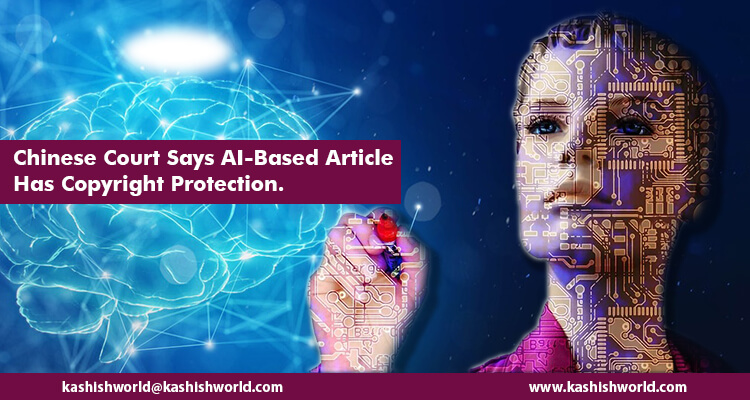
Quite recently, a court in Shenzhen, China, has ruled that an AI-based article (written by an Artificial Intelligence program) has Copyright Protection. The article was written by Tencent’s (a Chinese multinational conglomerate using technology to enrich the lives of online users) Dreamwriter AI Writing Robot, which is an internal code writing half a million articles every year on a variety of subjects, including real estate, finance, sports, and weather. Since 2015, the program is writing articles for multiple Tencent media outlets. The legal matter involved Yingxun Technology (Shanghai) Limited Company that copied and published one of the articles written by Tencent’s Dreamwriter. Consequently, Tencent went ahead with suing the tech company alleging Copyright Infringement. The court ruled in favor of Tencent and has ordered Yingxun to pay damages worth 1,500 yuan (USD 216).
With this ruling, China has become one of the most prominent jurisdictions in the world for the protection of AI-based works with copyright. It is indeed the very first instance revolving around a copyrighted work authored by a sophisticated AI. The defendant had tried to claim that the work didn’t deserve to get copyright protection as it wasn’t authored by a human being and was, therefore, in the public domain, open to use by anyone. However, the court ruled that the article’s form of expression was in line with the requirements of a copyrighted work, and the content displayed the selection, assessment, and evaluation of relevant stock data and market information. Furthermore, the article’s logic was concise, its structure was quite reasonable, and it possessed originality. To be specific, it fulfilled the requirements of obtaining copyright protection.
Without any second thoughts, it is indeed a great piece of news for everyone who has argued at some point or the other that AI works deserve to get copyright protection. Till now, the law has been quite ambiguous all around the world to say or rule in this matter. Besides, for the most part, it has assumed that such works are in the public domain due to the absence of an author and originality. The relevance of the Chinese court’s ruling is that it avoids the argument of authorship and jumps to the question of originality – Is the work original in the aspect of copyright? If the answer is yes, then it deserves to get copyright protection.
Although not all AI creators are looking forward to profiting from their AI investment with copyright protection, it is, however, quite evident that a few technology companies at least don’t want their competitors to gain profit from their AI-based works. It is a matter of fact that yes – Tencent never needed the monetary damages worth 216 dollars that it got from the ruling; all that mattered to the company was the fact that its competitor tech company couldn’t republish the article for free.
Therefore, we can conclude by saying that AI is here to stay in the present digital age, especially in the creative industry. While human beings shall continue to remain at the center of copyright protection, it is apparent that robots are coming too!

